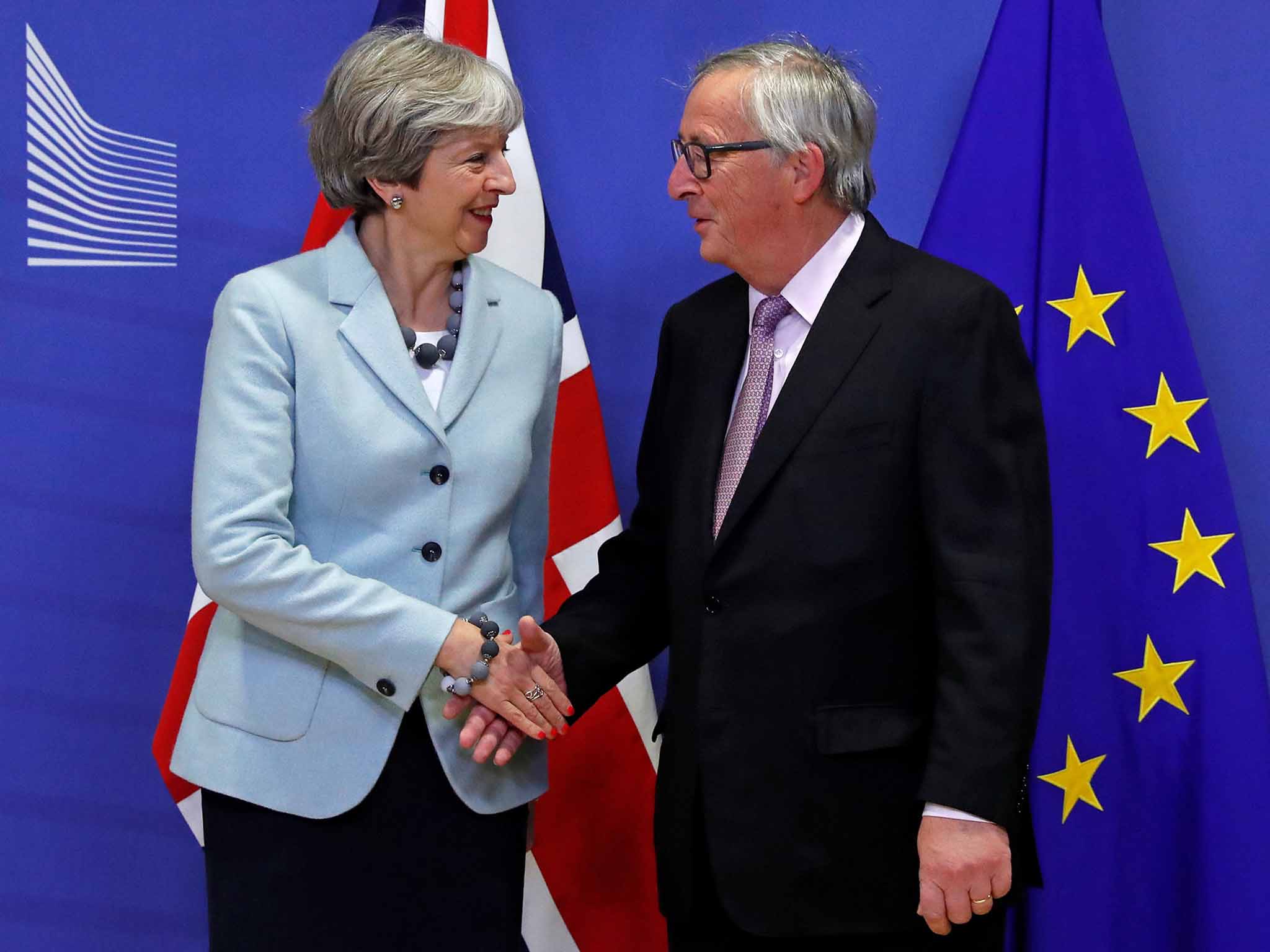Theresa May’s deal is a triumph for Brexit, but not for the UK
The single market is such a precious national asset for Britain that even the most frictionless of free-trade agreements is necessarily worse than the current arrangements

Rather like the man in Wolverhampton who decided to cement his head inside a microwave oven, Theresa May has had a lucky escape from her own recklessness, the EU’s negotiators and the Irish government performing the role usually given to the fire service of cutting her free of her bonds. Unlike the prankster in the West Midlands, though, she might well do it again. Some breakthrough.
Brexit is not quite a zero-sum game, but it is enough of one to make the unexpected success of phase one of the negotiations a cause of concern rather than celebration. For had the Prime Minister not pulled an all-nighter to secure this last-minute deal, the chances are that phase two of the talks, on the actual post-Brexit trade arrangements, would never have started on time. That might have made a hard Brexit possible, but it would also have enhanced the chances of the UK staying inside the European Union, so dire would the alternative appear.
And thus the Brexiteers are able, for the time being, to stick to their script that the EU will inevitably “come to its senses” and conclude a mutually beneficial trade deal next year, just as it has on EU and UK citizens’ rights (which could have been settled much earlier), the divorce bill and the Irish border. It may be, as Brexit Secretary David Davis sometimes suggests, that the final agreement will be a last-minute affair, scrabbled together in the wee small hours in some airless Brussels conference chamber, but, the Brexit camp maintains, a deal will be done.
Indeed, reading between the lines and taking the hints from the briefings that emerge from both sides, the most likely trade deal will be one modelled on the Canadian example, concentrating on trade in goods, with the possibility of some service sectors bolted on. That too would be regarded as a triumph for British diplomacy and for Theresa May personally.
If so, then it will be an odd sort of victory. It is at times such as this that it is a good idea to take a few steps back and look at what is before us: that we are about to spend £40bn or more on securing a trade deal that is inferior to the unimpeded and lucrative access to the single market – the largest and most prosperous in the world – with no great hope of securing alternative markets for British goods and, more crucially, services in other parts of the world. Indeed, as the Chancellor of the Exchequer revealed in one of his many moments of candour, the £40bn will be expanded even if there is no trade deal at all. What has been secured so far is a rotten deal, in truth, and no cause for Ms May and her allies to declare “game set and match”.
The point about a Canadian-style treaty with the EU – and the other trade agreements being touted with America, the Gulf states, China, India and Australia – is that they all concentrate heavily on physical goods, which represent a very small proportion of the UK economy, perhaps around 10 per cent on some measures. That means that the vast majority of the UK economy depends on the free movement of people and the provision of professional and other services across national borders – high-value services such as finance, architecture and software. This is why the EU single market is such a precious national asset for Britain, and why even the most “frictionless” of free-trade agreements is necessarily worse than the current arrangements. As the Prime Minister might say, “nothing has changed” about that since she watched the sun come up on Belgium in the company of Jean-Claude Juncker.
Yet even this deal, flawed as it is, has the scope to unravel, and at a point so late in the process that the only realistic consequence would be a hard Brexit, a “no deal” and trading with the EU on World Trade Organisation terms, widely regarded as a disaster. The Irish border provisions, in particular, have all the appearance of political fudge, and one that is likely to disintegrate under the pressure of making such political wishful thinking turn into hard law. The prospect of a hard border in Ireland has not receded just because some officials have come up with more “creative ambiguity”. It is true that the threat of a hard border in Ireland and a wider failure in trade might well concentrate minds. But running the talks as the British are doing means unacceptable risks being taken with the prosperity of the nation. Jobs, many millions of them, are at stake.
“Nothing is agreed until everything is agreed” goes the mantra, repeated in the Joint Report, which leaves open the frightening possibility that nothing will be agreed by the time the UK is due to leave the EU and thus falls off a cliff edge into a hard, concrete Brexit.
The case for optimism, then, is not strong despite the widespread relief being expressed around Europe. Brexit will still wreck jobs, divide families and fail to carry consensus even in the UK. Soft Brexit, so-called, will be an unpleasant and painful experience.
Nothing has changed: what’s good for Brexit is bad for Britain.
Join our commenting forum
Join thought-provoking conversations, follow other Independent readers and see their replies
Comments